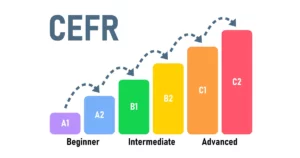การใช้ Phrasal Verbs : กฎ หลักการใช้ และตัวอย่าง
Phrasal Verbs คืออะไร ? การใช้ Phrasal Verbs
Phrasal Verbs คือกลุ่มคำที่บ่งบอกถึงการกระทำ กริยาวลีประกอบด้วยกริยาตามด้วยอนุภาค ไม่ว่าจะเป็น preposition หรือ adverb.
- Melissa got on the bus.
- We look forward to the new business venture.
- The athlete passed out after running 10 kilometers.
จะใช้ในลักษณะเดียวกับกริยาปกติในประโยค นอกจากนี้ เรามักใช้พวกเขาในการพูดภาษาอังกฤษและในสภาพแวดล้อมที่ไม่เป็นทางการ ดังนั้นจึงเป็นการดีที่สุดที่จะหลีกเลี่ยงการใช้กริยาเหล่านี้ในการเขียนอย่างเป็นทางการ เนื่องจากกริยาวลีอาจมีความหมายต่างกัน การทำเช่นนี้อาจนำไปสู่บริบทที่คลุมเครือ อย่างไรก็ตาม บริบทสำหรับการเขียนอย่างเป็นทางการต้องมีความชัดเจนและรัดกุม แต่ยังมีอีกมากที่เราจำเป็นต้องรู้ คุณต้องการที่จะหาข้อมูลเพิ่มเติมเกี่ยวกับกริยาวลี? ลองตรวจสอบกฎเหล่านี้
กฎของ Phrasal Verbs
1. Phrasal verbs จะมีความหมายแตกต่างจากกริยาดั้งเดิม
การรวมกันของคำนี้ก่อให้เกิดการแสดงออกคำศัพท์หน่วยเดียว ซึ่งให้ความหมายใหม่ ดังนั้นเรามาใช้ประโยคเหล่านี้เป็นตัวอย่างสำหรับการเปรียบเทียบ :
- We have to get the documents.
- Men easily get over certain illnesses.
กริยาเดิม “get” หมายถึงการได้รับบางสิ่งบางอย่าง อย่างไรก็ตาม เมื่อเติมด้วยอนุภาค ความหมายก็จะเปลี่ยนไป ในกรณีนี้ กริยาวลี “get over” หมายถึง หายจากอาการป่วย หรือผ่านพ้นจากสิ่งที่ไม่ดี
ตัวอย่างประโยคเพิ่มเติม :
- The little girl broke down when her puppy died. (break down = to lose control of one’s emotions)
- We ran out of drinking water. (run out = to have nothing left.)
- My friends had to put off their trip due to the pandemic. (put off = to postpone.)
2. Phrasal Verbs อกรรมกริยาแยกออกไม่ได้เพราะไม่ต้องการวัตถุ "object"
เช่นเดียวกับกริยาปกติ กริยาเหล่านี้สามารถจัดเป็น transitive หรือ intransitive ได้ เนื่องจากกริยาอกรรมกริยาไม่ใช้ object ใดๆ จึงเป็นไปไม่ได้ที่จะแยกกริยากับ particle ออก Since intransitive verbs do not take any object, it is not possible to separate the verb and the particle.
ตัวอย่างประโยค :
- The Smith family always comes back to this place every year. (come back = come again)
- My father wakes up very early. (wake up = to stop sleeping)
- The players showed up during the rehearsal. (show up = to arrive and be seen)
- She often shops around before finally buying the items. (shop around = to go to different shops before buying)
- The color of this shirt wears off easily. (wear off = to disappear slowly)
3. Phrasal verbs บางกลุ่มสามารถแยกออกได้ และแยกออกไม่ได้
เนื่องจาก Transitive Phrasal verbs มีการใช้ Object (กรรม) จึงเป็นไปได้ที่บางกริยาจะถูกแยกหรือประกอบเข้าด้วยกัน ลองตรวจสอบประโยคต่อไปนี้ :
- ประโยคที่ 1: Chuck Feeney gave away his money to charity.
- ประโยคที่ 2: Chuck Feeney gave his money away to charity.
- ประโยคที่ 3: Chuck Feeney gave it away to charity.
สังเกตว่าในประโยคแรกเราสามารถเก็บกริยาและ Particle ไว้ด้วยกันในขณะที่ตามด้วย Object ในประโยคที่สอง เป็นไปได้ที่จะแยกกริยาและ Particle โดย Object อย่างไรก็ตาม เมื่อใช้สรรพนามสำหรับกรรมนั้น จะต้องแยก phrasal verb ออก ดังนั้นจึงไม่ถูกต้องที่จะพูดว่า “Chuck Feeney gave away it to charity.”
ตัวอย่างประโยคต่างๆ เพิ่มเติม :
call off (to cancel an event or meeting) : เพื่อยกเลิกกิจกรรมหรือการประชุม
- 1st: The manager called off the meeting.
- 2nd: The manager called the meeting off.
- 3rd: The manager called it off.
fill out (to complete a form or document) : การกรอกแบบฟอร์ม หรือเอกสาร
- 1st: Fill out the request form before paying.
- 2nd: Fill the request form out before paying.
- 3rd: Fill it out before paying.
put on (to wear) : การสวมใส่
- 1st: We should put on a coat in winter.
- 2nd: We should put a coat on in winter.
- 3rd: We should put it on in winter.
4. Transitive phrasal verbs บางคำแยกออกจากกันไม่ได้
ยังมี transitive phrasal verbs อื่น ๆ ที่กริยามักจะไปพร้อมกับ particle เสมอ
ตัวอย่างประโยค เพิ่มเติม :
- Students go over their answers before submitting their examination sheets. (go over = review)
- Parents look after their children. (look after = take care of)
- Jason ran into his long-lost friend. (run into = meet by chance)
- With the way you speak, you take after your mother. (take after = resemble)
- Wendy can’t get over her past relationship. (get over = recover from a bad experience)
5. Three-Word phrasal verbs เป็นวลี 3 คำที่ไม่สามารถแยกจากกันได้
Phrasal Verbs บางคำประกอบด้วย 2 particles หลังคำกริยา นอกจากนี้ประเภทเหล่านี้ไม่สามารถแยกออกจากกันได้
ตัวอย่างประโยค เพิ่มเติม :
- We came up with a better strategy for the upcoming project. (come up with = propose something)
- Laughing can get rid of wrinkles. (get rid of = eliminate)
- Children look up to their teachers. (look up to = respect)
- I can’t put up with this noise! It’s too much! (put up with = tolerate)
- Our childhood memories make us laugh whenever we think back on them. (think back on = recall)
Key Points: สรุป ประเด็นสำคัญ
- Phrasal verb คือกลุ่มของคำที่บ่งบอกถึงการกระทำ ประกอบด้วยกริยาตามด้วยอนุภาค ไม่ว่าจะเป็นคำบุพบทหรือคำวิเศษณ์
- นอกจากนี้ เรามักใช้ Phrasal verbs ในการพูดภาษาอังกฤษและในสภาพแวดล้อมที่ไม่เป็นทางการ
- Phrasal verb ความหมายแตกต่างจากกริยาเดิม Original verb
- Intransitive phrasal verbs ใช้แยกกันไม่ได้
- Phrasal verbs บางประเภทอาจแยกออกได้หรือแยกออกไม่ได้ ในขณะ Phrasal verbs บางประเภทอาจแยกออกไม่ได้เด็ดขาด
- อย่างไรก็ตาม เมื่อใช้สรรพนามสำหรับ Object นั้นๆ จะต้องแยก Phrasal verb ออก
- และ สุดท้ายนี้ Three-word phrasal verbs แบบสามคำนั้นแยกออกจากกันไม่ได้




